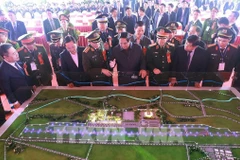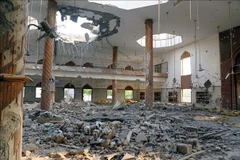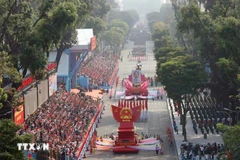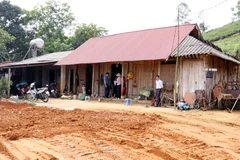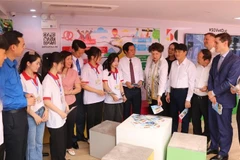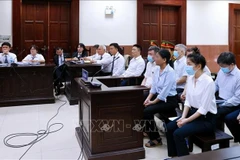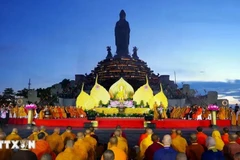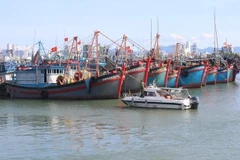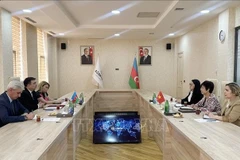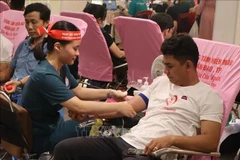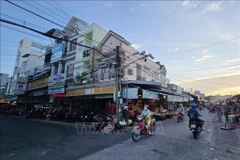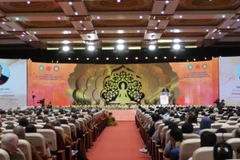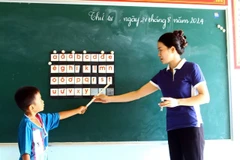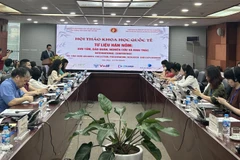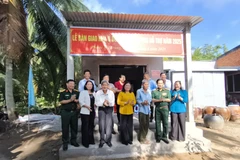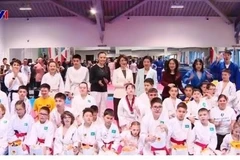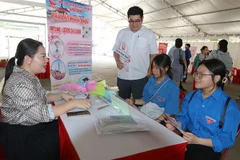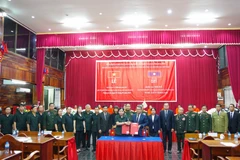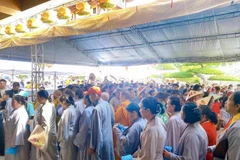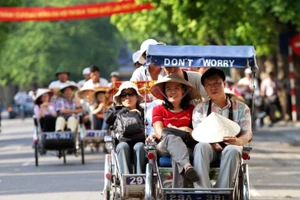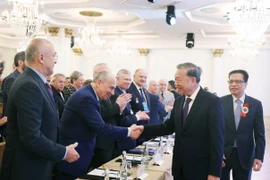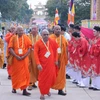Returning to Vietnam after 45years, American veteran Howerd Harrison, who used to be a paratroopermedic, wants to visit the place where he was stationed, and the sitewhere his friends died in Binh Dinh province.
Hewent back with his wife, Barbara."When I came on this trip, one of mygoals with my wife Barbara is to get to the place where Chris died andmake some sort of memorial. We couldn’t find it exactly, so we stoppedfor direction. After we arrived there, a gentleman gave us direction andhe accompanied us to make sure that we found it. And he identifiedhimself as a sapper," he said.
All the feelings oftorment and worry in Howerd’s heart seemed to go away when he met theVietnamese People’s Army soldiers. "We braced, we felt very sincere. Heshowed no sign of hostility. Later on, I thought as a sapper, he knewmany skills, could lay mines and he may have been the person who laidmines to kill my friends. But I felt that was OK because I know he wasdefending his country."
Barbara felt a sense ofrelief. For dozens of years, she has witnessed how her husband has beenworried and remorseful after taking part in the war in Vietnam. "I haveshared a lot with my husband’s pain of war. My family have always workedfor peace and we campaigned against the war in Vietnam. We are stillworking for peace. This trip is important for him and I have witnessedwhat my husband has done. He met, talked and sang with Vietnamesepeople. It is so wonderful and it helps heal the wounds of war in hissoul," she said.
For William, an American veteran,that shame has haunted his mind for the past four and a half decades."The innocent eyes of Vietnamese children, the rockets that blew up 15meters from me and made me deaf for a while, these were very disturbingme and made me sleepless at night. Those were two biggest thingsdisturbing my memory," he said.
During this trip toVietnam, William visited Pleiku city, Gia Lai province, where he wasstationed. "Returning on this trip, I and my friends of the Soldier’sHeart Initiative took part in building compassion houses, schools ,presented animals and helped Agent Orange victims. We are all brothersand sisters on the planet. It is a good return to me."
Howard and William are among hundreds of American war veterans. Returntrips have helped those American veterans as they continue to heal fromthe trauma of war. Edward Bryan Tick, who was an anti-war activist, ispresident of Soldier’s Heart Initiative. In 1970 when he met withAmerican combat vets who returned from in Vietnam, Edward Tick realisedthat many of them suffered from the pain and haunting of war.
"I realised a long time ago that psychological counseling andtherapies are not enough to heal the terrible wounds of war. Andcertainly, the heavy use of medication by psychiatric doctors cannotheal the wounds. I think the best possible thing we could do is to helpAmericans meet Vietnamese people and find out who they really are andlearn to turn their former enemies into friends," he said.
For over the past 10 years, SHI has organised many trips for veteransand their relatives to visit Vietnam. The group has also promotedhealing and reconciliation between the two countries. Activities such asmedical support and cultural exchanges have helped relieve the pain andsense of remorse of US war veterans.
"This is thetruth. It helps better to heal for within 2 or 3 weeks than 40 yearssince the war using medicine. You help us heal psychological spiritualwounds and we help you heal physical wounds. Together we make one peopleto heal everybody’s war wounds," he said.
Ticksaid many Americans still know little about Vietnam. SHI will do more torelieve the pain of war and help Americans learn more about Vietnam-VNA

